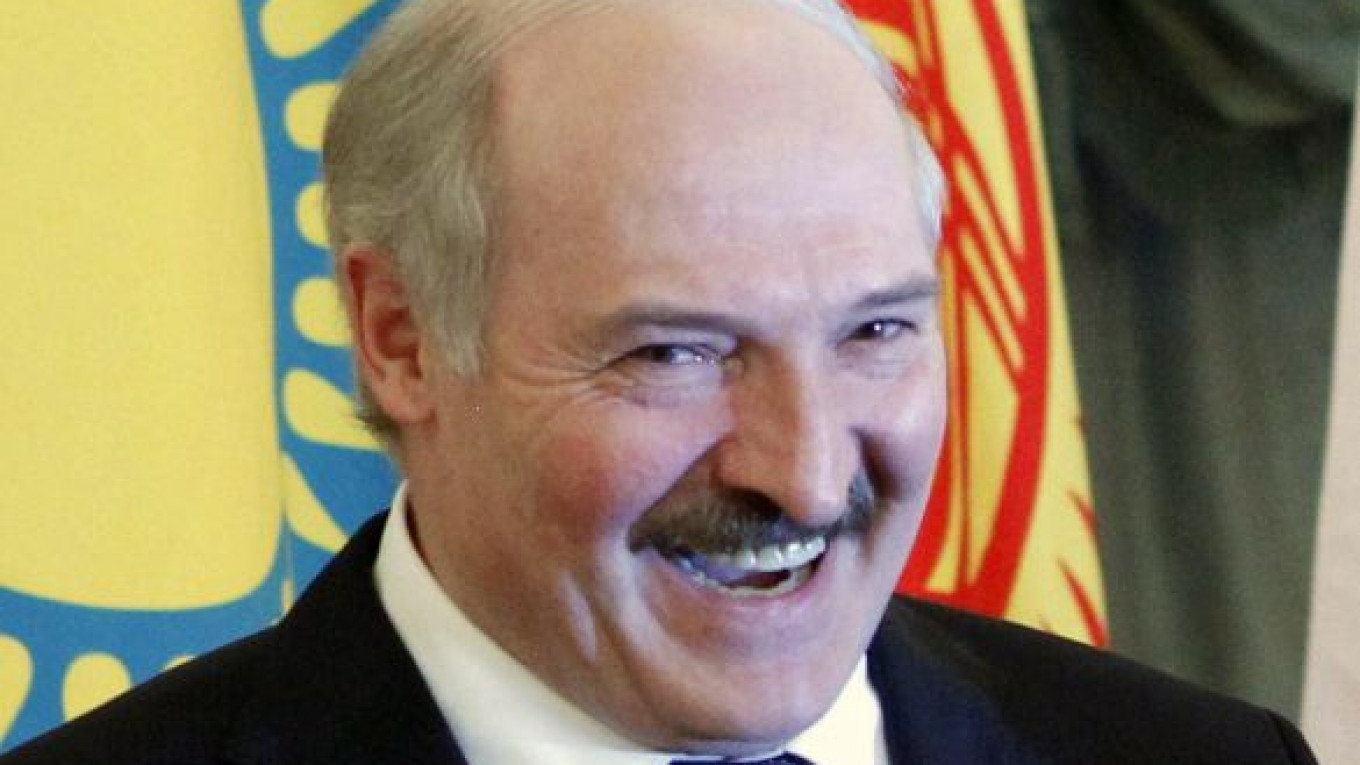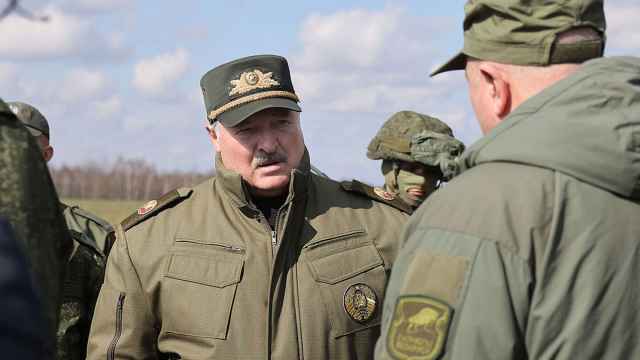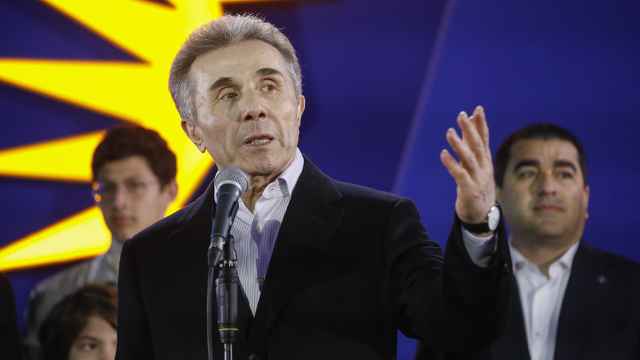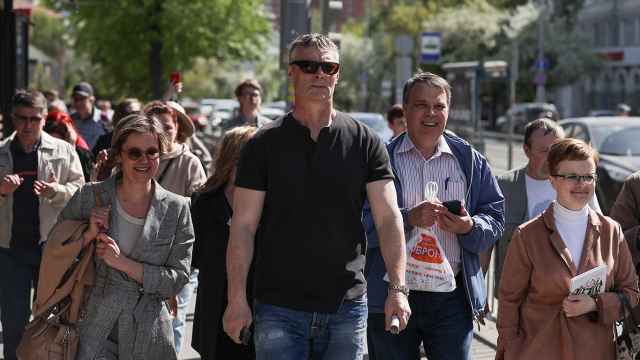Belarussian President Alexander Lukashenko rejected Western outrage at his country’s decision to execute two young men for a deadly bombing in the Minsk metro, insisting that they received fair trials.
The court case against Vladislav Kovalyov and Dmitry Konovalov was conducted according to the law and open, Lukashenko said in an interview with the English-language state television channel RT, formerly known as Russia Today, parts of which were published Wednesday by Interfax.
“The trial was absolutely transparent from the beginning to the end,” he said, adding that the decree to have them executed had been his toughest decision as president. “For me this was yet another lifetime’s tragedy.”
Kovalyov’s mother, Lyubov, expressed dismay at Lukashenko’s comments, telling Reuters: “It is as if he himself shot my son in the back of the neck and then expressed his condolences.”
Lukashenko ignored appeals from European Union leaders last week for clemency. When the execution was announced over the weekend, it drew strong condemnation. Human rights activists have voiced serious doubts about the case, suggesting that the men had confessed under torture.
Belarus is the only country in Europe that still carries out death sentences.
But Lukashenko angrily denied any tampering, pointing out that experts from Russia’s Federal Security Service, Israel’s Mossad and Interpol participated in the investigation.
“[They] had no questions and doubts at any stage of the trial,” he said.
Security expert Andrei Soldatov of the Agentura.ru think tank said Lukashenko’s explanation was not convincing. He pointed out that the foreign experts dispatched to Minsk after the blast in April 2011 were either technical staff or intelligence agents, not criminal investigators.
He said suspicion about the convicted bombers remains because they lacked professional experience.
“Past attacks in Russia have shown that those committing [the bombings] either had military backgrounds or a track record of failed bombings,” he said.
However, Kovalyov and Konovalov were also convicted for smaller explosions in Vitebsk in 2005 and in Minsk in 2008. In the second incident, police said they found Konovalov’s fingerprints on an unexploded bomb.
Writing in Wednesday’s The Moscow Times, columnist Yulia Latynina suggested that there was too little evidence to blame the Belarussian authorities.
“The fact that Lukashenko is a dictator doesn’t make Konovalov a martyr,” she .
Meanwhile, Lukashenko scoffed at the prospect of more sanctions. He accused the Belarussian opposition of lobbying for the sanctions and promised that more of their activists would be barred from leaving the country.
Minsk’s heavy-handed tactics against the opposition have elicited further calls for tougher sanctions against Belarus, already the continent’s pariah state.
Lukashenko is “increasingly unstable and dangerous,” analysts Jörg Forbrig and David Kramer wrote in an opinion article by the Euobserver.com website Wednesday.
The EU should respond with “more and tougher sanctions ... not an easing of pressure, to speed up the demise of his regime,” they said.
Apart from economic sanctions, Europeans have suggested a boycott of the Ice Hockey World Championship, which is to be held in Belarus in 2014. Lukashenko lambasted this as politicized and said that if enacted, it would be “a blow to the image of the International Hockey Federation.”
The EU will decide on the matter of sanctions at a foreign minister meeting this Friday in Brussels, but experts pointed out that the 27-member union is facing another unity test on Belarus.
Slovenia last month vetoed adding Belarussian businessman Yury Chizh to the blacklist, reportedly because a Slovenian construction company won a $100 million construction deal with one of his companies in Minsk, noted Andrew Wilson of the European Council of Foreign Relations. Reports this week suggest that Latvia will oppose sanctions against the Belarussian oil sector because this would result in a fuel price hike in the country.
Wilson, who is also the author of “Belarus: The Last European Dictatorship,” said the EU faced a choice of either compromising by sending back its ambassadors, which were withdrawn in a spat last month, or raising the stakes.
Maintaining “the status quo is always an option in the EU,” he said.
A Message from The Moscow Times:
Dear readers,
We are facing unprecedented challenges. Russia's Prosecutor General's Office has designated The Moscow Times as an "undesirable" organization, criminalizing our work and putting our staff at risk of prosecution. This follows our earlier unjust labeling as a "foreign agent."
These actions are direct attempts to silence independent journalism in Russia. The authorities claim our work "discredits the decisions of the Russian leadership." We see things differently: we strive to provide accurate, unbiased reporting on Russia.
We, the journalists of The Moscow Times, refuse to be silenced. But to continue our work, we need your help.
Your support, no matter how small, makes a world of difference. If you can, please support us monthly starting from just $2. It's quick to set up, and every contribution makes a significant impact.
By supporting The Moscow Times, you're defending open, independent journalism in the face of repression. Thank you for standing with us.
Remind me later.







